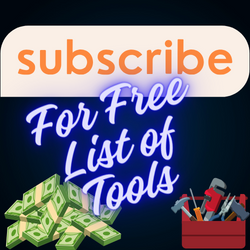Offer Lead Qualification Scripts for Sales Teams
Sales teams thrive on effective communication and clarity in their processes. One of the most critical aspects of this is lead qualification. It’s not just about generating leads; it’s about generating the right leads. With tailored qualification scripts, teams can quickly identify promising prospects, streamline their efforts, and focus on closing deals. A well-crafted script acts as a roadmap, guiding conversations and ensuring that sales representatives gather essential information while building rapport. This guide explores how to create effective lead qualification scripts that resonate with potential clients and elevate your sales strategy.
Understanding Lead Qualification
Lead qualification is the process of determining whether a potential customer has the potential to become a paying client. This involves gathering relevant information, assessing the prospect’s needs, and evaluating their readiness to purchase. Here are key points to consider:
- Types of Leads: Distinguish between marketing qualified leads (MQLs) and sales qualified leads (SQLs).
- Criteria: Develop specific criteria based on demographics, budget, and urgency.
- Benefits: Efficiently allocate resources and increase conversion rates.
The Importance of a Script
Scripts provide structure to conversations, keep the sales team focused, and help maintain consistency across different representatives. Here’s why having a script is beneficial:
- Consistency: Ensures all team members are on the same page.
- Confidence: Equips sales reps with the language they need to engage effectively.
- Efficiency: Reduces the time spent on unqualified leads.
Elements of an Effective Qualification Script
Creating a successful lead qualification script involves several core components. Here’s what to include:
- Introduction: A brief, friendly greeting sets the tone.
- Open-ended Questions: Encourage dialogue to gather insights.
- Specific Probing: Dive deeper into the prospect’s needs and challenges.
- Closing Statements: Guide the conversation toward the next steps.
Crafting Engaging Introduction Lines
The introduction is your first impression, and it matters. Aim for a warm, welcoming tone that piques interest. Here are some example lines:
- “Hi [Name], I noticed you expressed interest in [specific product/service]. Can we chat about how it might help you?”
- “Hello [Name], I’m [Your Name] from [Your Company]. Do you have a moment to discuss your current challenges?”
Personalizing the introduction can significantly enhance engagement. Use the prospect’s name and refer to previous interactions or specific interests.
Open-ended Questions to Foster Dialogue
Open-ended questions are critical for collecting valuable information. They encourage prospects to share more about their needs and pain points. Here are a few effective examples:
- “What challenges are you currently facing in [related area]?”
- “Can you describe what an ideal solution looks like for your team?”
- “How have you approached this issue in the past?”
These questions not only provide insights but also demonstrate genuine interest in the prospect’s situation.
Probing Deeper: Assessing Fit and Interest
Once you’ve established a rapport, it’s time to dig deeper. Use specific probing questions to assess whether the lead aligns with your ideal customer profile:
- Budget: “What budget have you allocated for this project?”
- Timeline: “When are you looking to implement a solution?”
- Decision-making: “Who else is involved in the decision-making process?”
These questions help gauge the prospect’s readiness to buy and identify any potential roadblocks.
Closing the Conversation: Next Steps
Every conversation should naturally lead to the next step. Closing effectively can set the stage for future interactions. Consider these approaches:
- “Based on what we discussed, I think a demo could really help illustrate our solution. Would you be open to scheduling one?”
- “I’ll send over some information tailored to your needs. Can we set a time to review it together?”
Securing a commitment for the next step keeps the momentum going and shows your engagement.
Training Your Sales Team
Once you’ve developed your scripts, it’s essential to train your sales team effectively. Here are some training tips:
- Role-Playing: Conduct practice sessions to help reps internalize the scripts.
- Feedback Loops: Encourage team members to share their experiences and adjust scripts accordingly.
- Continuous Improvement: Regularly review and update scripts based on market changes and feedback.
Monitoring and Adjusting Your Approach
Finally, it’s crucial to monitor the effectiveness of your lead qualification scripts. Track metrics such as conversion rates and feedback from sales reps. Here’s how:
- Analyze Data: Use CRM tools to assess which scripts yield the best results.
- Solicit Feedback: Regularly check in with your sales team for insights on the script’s performance.
- Refine Regularly: Stay adaptable and ready to revise scripts based on changes in the market or your product offerings.
Effective lead qualification scripts are vital tools for sales teams looking to enhance their performance. By guiding conversations, allowing for deeper insights, and maintaining a focus on the prospect’s needs, these scripts can significantly improve both efficiency and success rates. Crafting a script is not a one-time task but an evolving process that requires regular refinement and adaptation to keep it relevant and effective. Empowering your sales team with the right tools will lead to meaningful conversations and, ultimately, better sales outcomes.










Leave a Reply